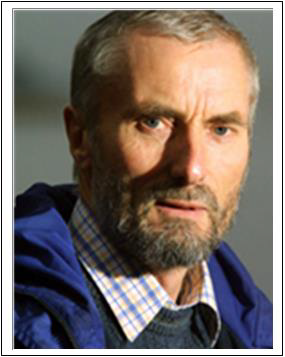Roger Owen

Dave Morris received a very well deserved honorary fellowship of the Royal Scottish Geographical Society on the 20th January this year at an online event. Dave, one of Scotland’s best known environmental campaigners, first came to work for the Nature Conservancy Council in Scotland in 1973. From 1989 to 2014, he was Director of the Ramblers Scotland, helping to create the Scottish national parks system and pioneering the ‘Right to Roam’ legislation. An RSGS spokesperson said: “Dave Morris was one of the most important voices in developing Scotland’s world-leading access legislation”.
In his acceptance speech Dave thanked in turn all those former colleagues in the Ramblers and Nature Conservancy Council and others in voluntary and governmental organisations who pursued the same aims for rights of access in Scotland. Dave also drew attention to the coincidence that the occasion of his award had, as the main event, a presentation by Stephen Venables whom Dave had first met as a young man at Bangor University and been asked to take him rock climbing. They had also discovered that in 1988 they both spent the night sleeping at near 8000m cols in Nepal, Dave on Cho Oyu and Stephen on Everest.
Dave pointed out that the various issues in which he had been engaged over the years were relevant to both the past and the future.
He remembered the successful battle against ski developments in the Lurchers Gully Public Inquiry but lamented the shambolic way in which successive governments have developed these mountain slopes. He was scathing about the estimated £175 million estimated to keep the funicular alive in the next 30 years, including £73 million expected from public funds, and was clear that another public inquiry into ski developments was necessary.
Dave also drew attention to the issue of red deer management and the poor record in Scotland of their control despite attempts at regulation. He expressed great disappointment at continued overgrazing but optimism in the advent of Scandinavian landowners who have, from Glenfeshie to Corrour, shown that enlightened deer reduction policies can lead to properly regenerating woodlands. Dave wondered if the RSGS could play a part in encouraging others to follow the Scandinavian lead.
Dave acknowledged the superb work of all those in voluntary and government sectors, as well as politicians, for delivering Scotland’s world class right to roam legislation. Dave pointed out that even Donald Trump, now with more time on his hands, had to acknowledge rights of public access over his golf courses.
Dave reminded everyone that Alan Blackshaw, a key player in delivering the right to roam legislation, argued that access to nature should become a fundamental human right recognised by the UN. As more of us now live in urban areas than ever before this seems even more relevant. The restrictions of the pandemic have made many politicians worldwide realise that close contact with nature is essential for physical and mental wellbeing. That contact is the only way to develop the understanding needed to make the decisions that protect and restore nature and mitigate climate change. Dave suggested that RSGS should become a key player in promoting access to nature as a UN recognised human right with insights based on our access legislation.
Please let the webmaster know if there are problems with viewing these pages or with the links they contain.